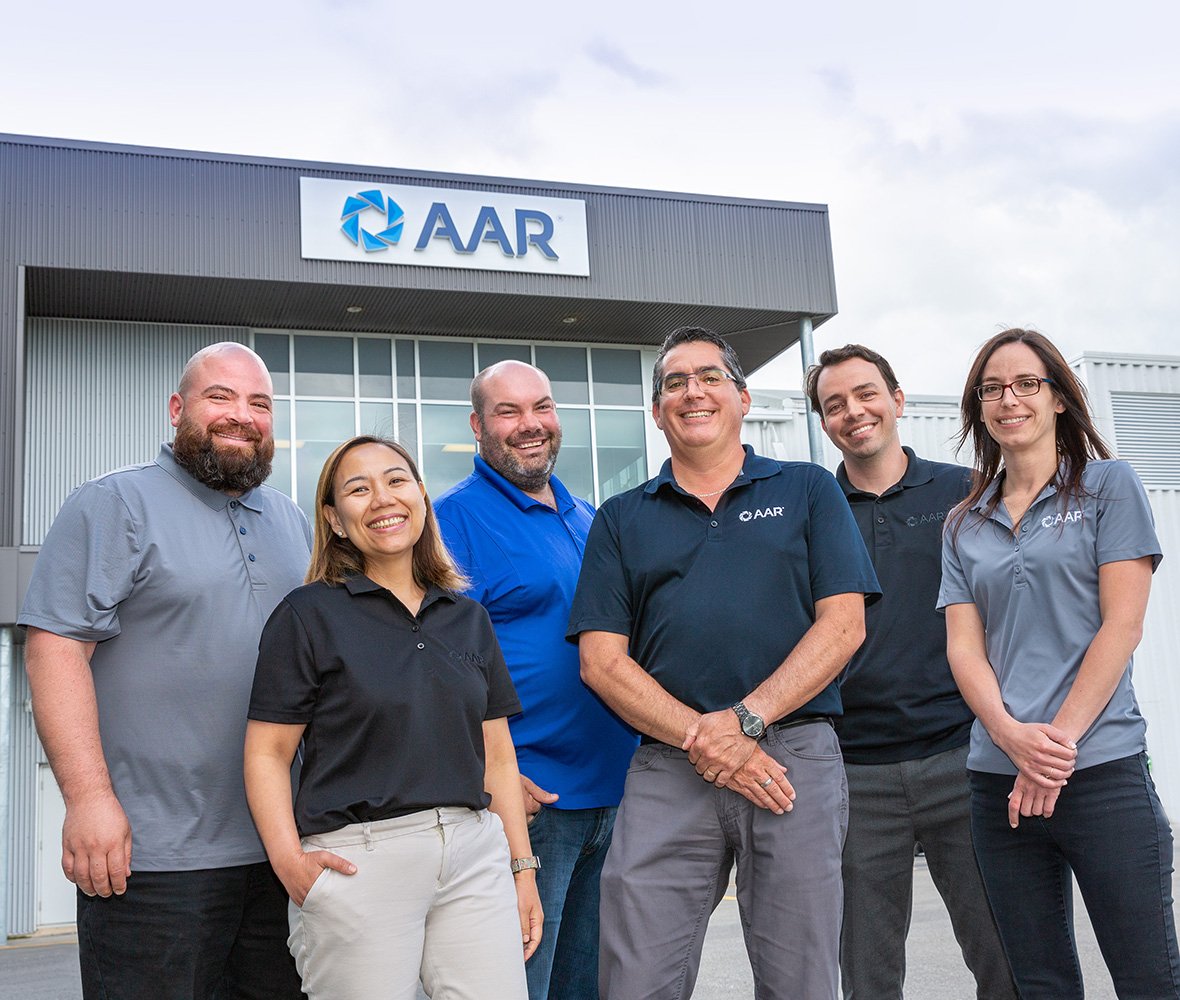Environmental, social, and governance (ESG)

Along with our guiding principle of Doing It Right®, our ESG commitments help inform AAR’s decision-making as we navigate an ever-changing world. We are committed to analyzing and better understanding how AAR impacts our local and global communities, the environment, and our industry so that we may reduce potential risk, promote resiliency, and drive value for all stakeholders.

Focusing on the environment
We are committed to carefully monitoring environmental impacts and instituting safeguards for preserving the natural environment, reducing climate-related risks, and creating opportunities for the prevention, retention, and recycling of waste and other materials used in our business processes.
Key impact areas include emissions, materials, energy, and waste.

Driving social responsibility at our Company
We are committed to managing our relationships with all stakeholders, including our employees, customers, supply chain partners, and communities, in an inclusive, fair, and respectful manner.
Key impact areas include aviation safety, workforce and employee engagement, diversity, equity, and inclusion, employee health, safety, and well-being, training and education, occupational health and safety, community engagement, and charitable donations, events, and activities.

Governing with integrity
We are committed to establishing, implementing, and maintaining an effective governance structure that is agile and responsive to business needs and evolving best practices, and sets high ethical standards.
Key impact areas include risk identification and mitigation, anti-corruption, information security, and ethics, compliance, and integrity.
Materiality
As part of our ongoing ESG journey, we engaged a third-party expert during the 2022 fiscal year to conduct an ESG impact assessment to help deepen our understanding of our current and potential sustainability impacts, and to incorporate ESG-related risks and opportunities into our strategy. Through the assessment, we identified potential ESG topics relevant to AAR, engaged stakeholders, and prioritized our areas of impact, in preparation to take purposeful action on our path toward becoming an even more sustainable company.
Looking ahead, we are committed to analyzing and better understanding how our Company impacts our local and global communities, environment, and economy, and applying sustainability considerations to our decision making.
ESG impact assessment
Our process for assessing ESG areas of impact started by identifying the full range of topics found within the GRI Standards and in the context of our organization and best practices set by our peers and supply chain partners. We then generated a short list of relevant topics that we further vetted with a group of internal cross-functional stakeholders who we engaged to help identify the significance of impacts by evaluating risks, blind spots, and the potential to drive change through innovative practices in each topical area. Our internal cross-functional team then prioritized and validated the topics by completing a survey that considered the perspectives of the stakeholders they serve, which will help us apply their understanding of the management approach as seen through their respective stakeholder perspectives.
A third-party consultancy firm was contracted to help facilitate the overall exercise, including the final assessment for gauging the significance of impacts. Stakeholder interests were reviewed through a desktop analysis that identified applicable criteria to the evaluate impacts.

Identify
Develop comprehensive list of potential topics.
Engage
Identify and evaluate significance of topics with stakeholders.
Prioritize
Analyze and validate topics based on most significant impacts and understanding of management approach.
Apply
Incorporate risks and opportunities related to key areas of impact into strategic and business decision-making and reporting.For the most recent impact assessment, please refer to the 2022 ESG Report.


